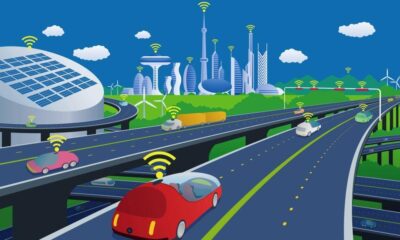

Features
How to Maintain an Eco-friendly Lifestyle on a Low Budget
With the rising cost of living, it can be difficult to stick to the most eco-friendly way of life. Cheaper options which help you stick to a tight budget can often be more appealing than the environmentally responsible option, and convenience can be a bigger pulling factor that you’d like, especially when working two jobs to make ends meet.
Fortunately, it’s fully possible to live an eco-friendly lifestyle on a low budget without pulling yourself into the red. Here are 5 ways you can do your part to save the Earth without breaking the bank.
Switch to LED lighting
Did you know that lighting accounts for about 40 per cent of your electricity bill? Old incandescent lighting is extremely inefficient, with a huge amount of energy wasted as heat. Modern LED lighting offers a similar level of brightness while using up to 90 per cent less power, which in turn means lower energy bills and lower levels of CO2 production in turning on your lights. While the initial investment can be eye-popping considering you’re just buying lightbulbs, the truth is that you can break even in as little as six months – from there on out it’s all savings.
Make sure your insulation works
If your radiators are pouring heat into atmosphere because of blown double glazing and poor loft insulation, you have a problem. More specifically, your heating bills will rocket during the winter months and you will be actively harming the environment at the same time. By ensuring that your insulation works as it should, you can keep your thermostat (and your bills) down, your house warm, and the environment safe.
Carpooling, public transport and cycling to work
The prospect of cycling to work in the rain isn’t fun, and the thought of waiting for a packed bus is never great. However, there’s no denying how much cheaper and more environmentally friendly these options are when compared with driving to and from work. If it’s not possible to take public transport or cycle to work, try looking into carpooling. Your co-workers will often be happy to cut the cost of fuel, even if the environment isn’t their highest priority.
Cut down on your meat intake
No, this isn’t a call to arms for vegetarianism – it’s a simple fact that meat is expensive and meat substitutes such as Quorn are often much cheaper. The fact that Quorn production produces far less greenhouse gas emissions than your average cattle ranch is simply a bonus. By and large these substitutes taste fairly similar to the original, and with the right recipe most people won’t even know the difference.
Shop late at night
There are two main benefits to going grocery shopping late at night. Firstly, less traffic means less fuel wastage in getting to the shops and you get your shop done quicker. Secondly. Secondly, by shopping late at night you have access to the cheaper, marked down groceries. This means that you can make the most of organic food without the mark-up which comes with the word “organic”. This is a win-win situation, no matter how you spin it.
If you’re struggling with your personal finances to the point where some of these suggestions simply aren’t feasible, remember that there are options open to you which can help. Sites like trustdeedscotland.net don’t just offer a way to consolidate your debts, they offer free, impartial debt advice to ensure that you’re doing the right thing for someone in your position.


 Environment12 months ago
Environment12 months agoAre Polymer Banknotes: an Eco-Friendly Trend or a Groundswell?

 Features11 months ago
Features11 months agoEco-Friendly Cryptocurrencies: Sustainable Investment Choices

 Features12 months ago
Features12 months agoEco-Friendly Crypto Traders Must Find the Right Exchange

 Energy11 months ago
Energy11 months agoThe Growing Role of Solar Panels in Ireland’s Energy Future




























